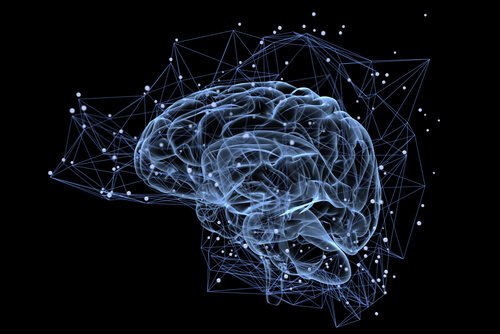Chronic Anxiety and its Link to Norepinephrine


Written and verified by the psychologist Valeria Sabater
You start the day saying that today it won’t happen to you. Today will be a good day. And yet it it happens. Because when you suffer from chronic anxiety, fear is always there. It’s waiting to grip you, and, when it does, you are lost. It takes your breath away, makes you tremble, gives you a cold sweat and makes you experience endless thoughts and catastrophic ideas. All these processes are mediated by one single molecule: norepinephrine.
For those who have not heard of this neurotransmitter, which in turn acts as a hormone, we will give a small example to start with. Let’s imagine that you are going to cross a street and, suddenly, you hear a car’s horn. You forgot to look at the traffic light, and then had to react in a split second to jump out the way. On doing this, we can feel how fast our heart is beating. We can feel a knot in our stomach, and our breathing has accelerated dramatically.
People suffering from chronic anxiety have high levels of norepinephrine, a hormone-neurotransmitter that can seriously affect the health of your heart.
What does norepinephrine do?
Norepinephrine acts directly in the sympathetic nervous system. Norepinephrine is responsible for mediating situations where our brain interprets that there is a danger. It is this neurotransmitter which helps us to react, run away, fight and, simply, to survive. It does so by increasing our heart rate and blood pressure. In addition to this it increases the passage of air through the lungs and the contraction of nutrients in the muscles. All this neurochemical and physiological action allows us to react much better to everyday risks.
However, the problem with our modern day world is that most of us react to stress factors that have nothing to do with real physical risks. Our psychological fears, anxieties and phobias activate this hormone in the same way. Because of this, if someone isn’t able to manage their anxiety properly, then the effect of norepinephrine in our body can be devastating.

I suffer from chronic anxiety, what is happening to me?
They say of chronic anxiety that it is the “100 symptom disease”. The most curious of all this is that, despite having so many physical, emotional and cognitive symptoms, most people with this disorder will come to live with their fears on a regular basis. What one day started as a common, and even manageable, anxiety, ended up becoming chronic. It has developed into a much more serious illness.
The worst thing about anxiety is that it is a terrible liar. It makes us believe that we are about to lose control. It tells us that we should listen to our phobias because they are always right. And, on top of that, it will convince us to worry about everything. Always expect the worst, it tells us. As we can see, it isn’t easy to get out of this never-ending suffering. And that’s primarily because of the effect of that cerebral biochemistry that is controlling us. In these processes, norepinephrine is of key importance.
Chronic anxiety affects your cardiovascular health
Recent research from the University of Iowa has made some interesting findings. It has revealed the intimate relationship between norepinephrine and the risk of cardiovascular illnesses in people with chronic anxiety. Stress that remains over time results in very damaging physiological changes. Among these are blood pressure, tachycardia, and arritmias. All of these processes put our health at risk.

Norepinephrine and alterations in the adrenal glands
Something we should remember is that norepinephrine is not only produced in the brain. Outside of the brain, noradrenaline or norepinephrine also occur in the endocrine system. Or, more specifically, in the adrenal glands. What does this mean then? That chronic anxiety produces an overproduction of this substance, and this can produce the following:
- Headache.
- Digestive problems.
- Insomnia.
- Loss of appetite.
- Fatigue.
- Sweating.
- Constant feeling of general malaise.
Norepinephrine and cognitive effects
There are very interesting studies that show, for example, the relationship between an elevated level of norepinephrine and ADHD (Attention Deficit Hyperactivity Disorder). As a neurotransmitter, this compound is essential in helping us focus our attention. In addition it helps us to remember data, to learn, and to process information. However, its level must be correct in order for our cognitive processes to work effectively.
A level that is either too high or too low can cause memory losses, attention deficit, and difficulty in learning new things. It is a quite exhausting and complicated condition.
Norepinephrine and its link to chronic anxiety and depression
We already know that people with chronic anxiety have an excess of norepinephrine. However, there is a fact that we cannot ignore. It is known that catecholamines, such as norepinephrine and dopamine, have a key importance in the pathophysiology, or symptoms, that underlie certain depressive disorders. Any overproduction or deficit can cause serious changes in our mood.
It is common for many patients, who are currently living in the cycle of fear and negative thoughts, created by their anxiety, to end up suffering from a major depression. Dr. Joseph J. Schildkraut from Harvard University speculated about this in the 60s. He realised that it is norepinephrine, and not serotonin, that causes us to suffer from chronic anxiety or depression.

The origin of these disorders doesn’t really matter. The fact is that, if we are suffering from the same symptoms, we need to know that we can escape from them. We can choose between two situations. The first is to stay on the edge of the abyss and experience the same fear day by day. In this way we fall back into that abyss on a daily basis. The second option is simple. We can choose to be a reactor. A reactor like an airplane that flies over that very same abyss. It observes it from above, understands it better, gets around it and leaves it behind.
Cognitive-behavioral therapy can help us to understand the root of our anxiety. Nor should we ignore the pharmacological approach to balance the production of norepinephrine. Finally, remember that diets rich in vitamin C, copper and omega 3 fatty acids help us to keep the right levels of this neurotransmitter.
This text is provided for informational purposes only and does not replace consultation with a professional. If in doubt, consult your specialist.








